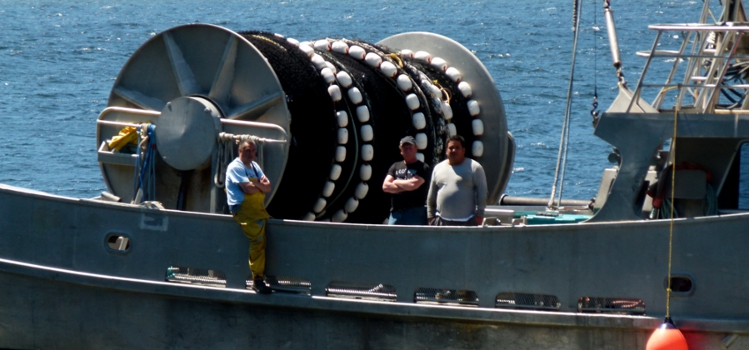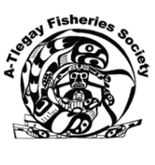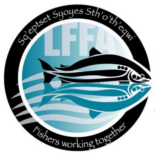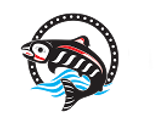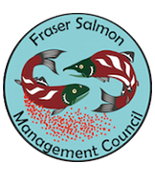First Nation Organizations
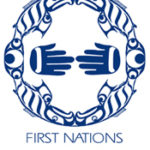 The First Nations Fisheries Council has seats for 14 Council Members, which reflect the regional diversity of the province as well as the diversity of First Nations expertise and perspectives. More information about the work and direction of the First Nations Fisheries Council is available in our Strategic Plan and the Institute on Governance Report.
The First Nations Fisheries Council has seats for 14 Council Members, which reflect the regional diversity of the province as well as the diversity of First Nations expertise and perspectives. More information about the work and direction of the First Nations Fisheries Council is available in our Strategic Plan and the Institute on Governance Report.
Phone: (778) 379-6470
Email: info@fnfisheriescouncil.ca
Website: www.fnfisheriescouncil.ca
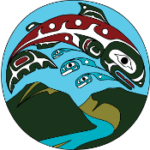 The Fraser River Aboriginal Fisheries Secretariat (FRAFS) was established by Fraser First Nations and the Department of Fisheries and Oceans (DFO) in 1994 to provide communications and support services to the Fraser Watershed Steering Committee under the Fraser Watershed Agreement.
The Fraser River Aboriginal Fisheries Secretariat (FRAFS) was established by Fraser First Nations and the Department of Fisheries and Oceans (DFO) in 1994 to provide communications and support services to the Fraser Watershed Steering Committee under the Fraser Watershed Agreement.
Phone: (250) 378-4235
Email: gwitzky@nicolatribal.org
Website: www.frafs.ca
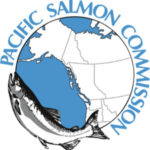 Management of Pacific salmon has long been a matter of common concern to the United States and Canada. In 1985, after many years of negotiation, the Pacific Salmon Treaty was signed, setting long-term goals for the benefit of the salmon and the two countries. The Pacific Salmon Commission is the body formed by the governments of Canada and the United States to implement the Pacific Salmon Treaty.
Management of Pacific salmon has long been a matter of common concern to the United States and Canada. In 1985, after many years of negotiation, the Pacific Salmon Treaty was signed, setting long-term goals for the benefit of the salmon and the two countries. The Pacific Salmon Commission is the body formed by the governments of Canada and the United States to implement the Pacific Salmon Treaty.
Phone: (604) 684-8081
Email: info@psc.org
Website: www.psc.org
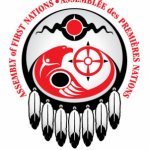 The Assembly of First Nations (AFN) is the national representative organization of the First Nations in Canada. There are over 630 First Nation’s communities in Canada. The AFN Secretariat, is designed to present the views of the various First Nations through their leaders in areas such as: Aboriginal and Treaty Rights, Economic Development, Education, Languages and Literacy, Health, Housing, Social Development, Justice, Taxation, Land Claims, Environment, and a whole array of issues that are of common concern which arise from time to time.
The Assembly of First Nations (AFN) is the national representative organization of the First Nations in Canada. There are over 630 First Nation’s communities in Canada. The AFN Secretariat, is designed to present the views of the various First Nations through their leaders in areas such as: Aboriginal and Treaty Rights, Economic Development, Education, Languages and Literacy, Health, Housing, Social Development, Justice, Taxation, Land Claims, Environment, and a whole array of issues that are of common concern which arise from time to time.
Phone: (613) 241-6789
Website: www.afn.ca
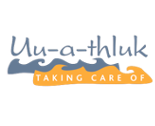 Uu-a-thluk brings Nuu-chah-nulth-aht together to work with other governments and groups. Its framework allows us to manage our aquatic resources consistent with Nuu-chah-nulth practices and principles, complimenting and reinforcing Ha’wilth patuk Ha’wiih (Nuu-chah-nulth governance). Together we are increasing Nuu-chah-nulth participation in the harvest and management of our aquatic resources.
Uu-a-thluk brings Nuu-chah-nulth-aht together to work with other governments and groups. Its framework allows us to manage our aquatic resources consistent with Nuu-chah-nulth practices and principles, complimenting and reinforcing Ha’wilth patuk Ha’wiih (Nuu-chah-nulth governance). Together we are increasing Nuu-chah-nulth participation in the harvest and management of our aquatic resources.
In our Nuu-chah-nulth language, Uu-a-thluk means “taking care of.”
Phone: (250) 724-5757
Email: info@uuathluk.ca
Website: www.uuathluk.ca
Founded in 1999, A-Tlegay was the result of collaboration of the five member nations; We Wai Kai, Wei Wai Kum, K’omoks, Tlowitsis and Kwiakah Nations.
Phone: (250) 287-8868
Email: atlegay@shaw.com
Website: www.a-tlegay.ca
The LFFA is a voice for the first Nations of the Lower Fraser River. We work collaboratively and holistically to manage our fishery and to support our cultural and spiritual traditions for future generations.
Phone: (604) 852-4040 Ext. 24
Website: www.lffa.ca
The UFFCA promotes accountability in the conservation, protection and sustainable harvest of UFFCA fish populations, as well as the health of the ecosystems upon which they depend.
Phone: (250) 612-7393
Email: marsshepert@gmail.com
Website: www.upperfraser.ca
The Fraser Salmon Management Council is a governance body that successfully concluded a historic agreement with Fisheries and Oceans Canada (DFO).
Phone: (250) 378-4235
Email: fsmc.comms@gmail.com
Website: www.frasersalmon.ca
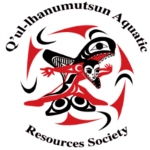
Fish and fisheries are an integral part of the lives and culture of the First Nations members of the Q’ul-lhanumutsun Aquatic Resources Society. QARS is made up of members from the Stzuminus, Halalt, Penelakut and Lake Cowichan First Nations. Their traditional territories are on the south-eastern part of Vancouver Island, British Columbia.
Phone: (250) 246-4736
Government Links
 The following link is to the Department of Fisheries and Oceans (DFO) Integrated Fisheries Management Plans – Pacific Region. This link contains a list of all marine species in PDF format.
The following link is to the Department of Fisheries and Oceans (DFO) Integrated Fisheries Management Plans – Pacific Region. This link contains a list of all marine species in PDF format.
Email: Ge.Li@dfo-mpo.gc.ca
Website: www.pac.dfo-mpo.gc.ca/fm-gp/ifmp-eng.html
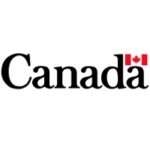 Aboriginal fisheries are an integral part of fisheries resource management in the Pacific Region. Through consultation, cooperative management and stewardship activities, Fisheries and Oceans Canada (DFO) regional staff and Aboriginal groups are working together to build strong, healthy relationships and sustainable fisheries. Economic and capacity building opportunities are providing Aboriginal groups with tools that contribute to building healthy and sustainable Aboriginal communities.
Aboriginal fisheries are an integral part of fisheries resource management in the Pacific Region. Through consultation, cooperative management and stewardship activities, Fisheries and Oceans Canada (DFO) regional staff and Aboriginal groups are working together to build strong, healthy relationships and sustainable fisheries. Economic and capacity building opportunities are providing Aboriginal groups with tools that contribute to building healthy and sustainable Aboriginal communities.
Included here is a transcription of the Conveyance of Land to Hudson’s Bay Company by Indian Tribes document. It was taken from Papers Connect with the Indian Land Question, 1850-1875. The format has been changed somewhat but the content is original.
Website: www.aadnc-aandc.gc.ca/eng/1100100029052/1100100029053
Reconciliation involves commitment to healing the relationships between the Province and Aboriginal peoples. It entails the Province working collaboratively with Aboriginal peoples to achieve a better future built on positive and lasting relationships.
Phone: 1-800-663-7867
Email: EnquiryBC@gov.bc.ca
Website: www2.gov.bc.ca/gov/content/governments/organizational-structure/ministries-organizations/ministries/indigenous-relations-reconciliation

